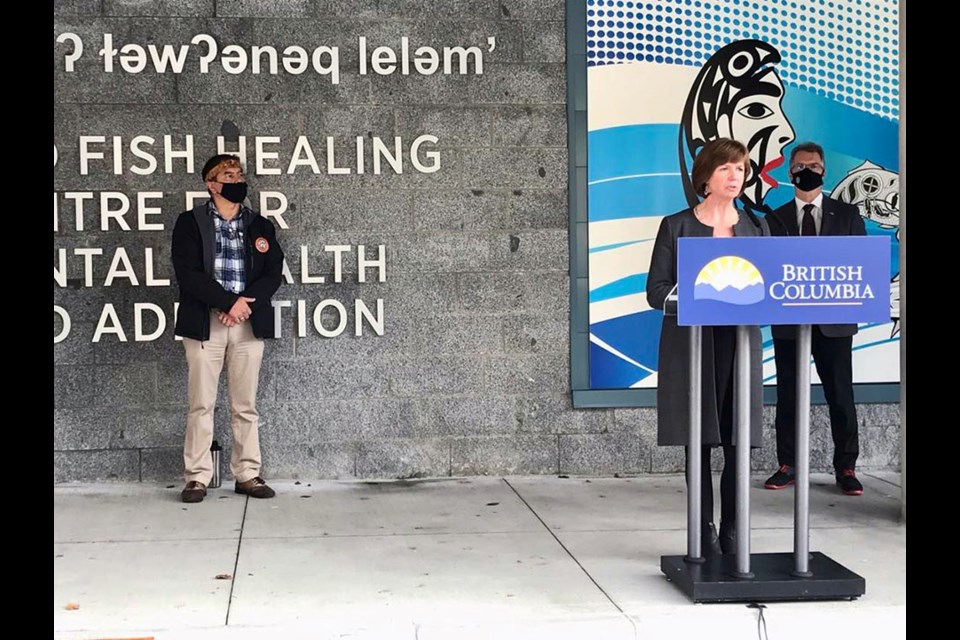A Centre of Excellence to help British Columbians with both mental health and addiction challenges is now open in Coquitlam.
Today (Oct. 29), the provincial government formally launched the səmiq̓wəʔelə Red Fish Healing Centre on the grounds that used to be called Riverview Hospital.
The $130 million facility will be the first of its kind in North America, said Sheila Malcolmson, B.C.’s minister of mental health and additions, as the care model to deliver the recovery programs to patients was tied to the design of the building.
Before the press conference, Malcolmson toured the 105-bed centre with Chief Ed Hall of the kʷikʷəƛ̓əm First Nation, which has a land claim on the historical site, as well as three Tri-City MLAs: Solicitor General and Minister of Public Safety Mike Farnworth (Port Coquitlam); Finance Minister Selina Robinson (Coquitlam-Maillardville); and Fin Donnelly (Coquitlam-Burke Mountain).
Calling the natural light-filled centre “a major and overdue step,” Malcolmson said the facility will be ground-breaking as it aims to treat adults with the most severe and complex concurrent disorders.
And its healthcare practitioners will be “fanning out” their findings and expertise to other health authorities around the province and beyond to treat people in those communities. Besides the in-person care, the səmiq̓wəʔelə Red Fish Healing Centre will also provide virtual education and solutions for people with the dual disorders.
Malcolmson cited the opioid epidemic that’s been exacerbated by the COVID-19 pandemic. Last year, 6,213 Canadians died from the drug compared with about 4,000 in 2019.
“We are swimming against a rising tide,” she said, noting the centre will help people who have “fallen through the cracks.”
Open since Oct. 12, the hub replaces the now-decommissioned Burnaby Centre for Mental Health and Addictions on Willingdon Avenue. And while patients are referred to Red Fish by local health authorities, it’s not yet at full capacity, said David Byres, president and CEO of the Provincial Health Services Authority.
The centre news follows an earlier provincial opening of 101 new beds in B.C. for adults plus 30 more spots for youth, Malcolmson said. As well, the government recently announced a $132 million push to add 130 healthcare staff, 195 substance-use treatment beds and 65 new or improved services across B.C.
But while more treatment beds are to come, Malcolmson told the Tri-City News that there are no immediate plans to build more facilities at səmiq̓wəʔelə in Coquitlam.
Robinson, a former family therapist with SHARE in Coquitlam, said specialized treatment is critical — especially to understand the opioid crisis. “We are losing loved ones,” she said.





